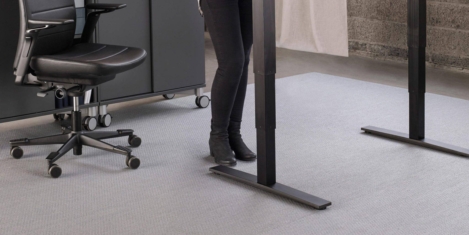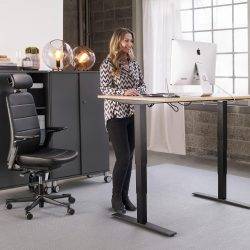October 17, 2017
Unequal access and usage could hold back potential of global digital economy
 Digital technologies continue to make impressive advances. Internet infrastructure is improving and the usage of digital tools is growing. The social impacts of digital innovation have also become more pronounced in diverse fields. However, progress is uneven across countries, businesses, and within societies. Broadening access to digital opportunities and helping those lagging behind to catch up would increase the benefits of the digital transformation and help ensure they are widely shared across economies and people, according to a new OECD report. The OECD Digital Economy Outlook 2017 says government policy has not kept pace with the digital innovation and transformation of economies and societies led by big technology firms. It calls on countries need to step up their efforts, invest more in education and skills and encourage greater use of advanced technologies like big data analysis and cloud computing, in particular by small businesses, to make the digital shift more productive and inclusive.
Digital technologies continue to make impressive advances. Internet infrastructure is improving and the usage of digital tools is growing. The social impacts of digital innovation have also become more pronounced in diverse fields. However, progress is uneven across countries, businesses, and within societies. Broadening access to digital opportunities and helping those lagging behind to catch up would increase the benefits of the digital transformation and help ensure they are widely shared across economies and people, according to a new OECD report. The OECD Digital Economy Outlook 2017 says government policy has not kept pace with the digital innovation and transformation of economies and societies led by big technology firms. It calls on countries need to step up their efforts, invest more in education and skills and encourage greater use of advanced technologies like big data analysis and cloud computing, in particular by small businesses, to make the digital shift more productive and inclusive.














 Half of employees feel their organisation doesn’t have the right tech skills and nearly half in a recent survey (44 percent) feel their organisation isn’t transforming into a digital led company fast enough, claims a survey by Sungard Availability Services. Digital workplace transformation has been a big talking point in recent months, yet 38 percent in a survey of over 2,000 IT decision makers and employees believe their organisation isn’t committed to digital transformation; with 36 percent not getting the training for the tools. It’s apparent that digital transformation is highly thought of in the work place and impacts employee retention with 36 percent of employees open to leaving their current job for a more digitally-progressive company. Over 50 percent believe career progression is better at digitally led companies and 69 percent say digital tools would help them to do their job better. Said Chris Ducker, Senior Director Global Proposition Strategy: “Digital is compulsory, not only to stay competitive in the market, but also to attract and retain key staff” See the full survey
Half of employees feel their organisation doesn’t have the right tech skills and nearly half in a recent survey (44 percent) feel their organisation isn’t transforming into a digital led company fast enough, claims a survey by Sungard Availability Services. Digital workplace transformation has been a big talking point in recent months, yet 38 percent in a survey of over 2,000 IT decision makers and employees believe their organisation isn’t committed to digital transformation; with 36 percent not getting the training for the tools. It’s apparent that digital transformation is highly thought of in the work place and impacts employee retention with 36 percent of employees open to leaving their current job for a more digitally-progressive company. Over 50 percent believe career progression is better at digitally led companies and 69 percent say digital tools would help them to do their job better. Said Chris Ducker, Senior Director Global Proposition Strategy: “Digital is compulsory, not only to stay competitive in the market, but also to attract and retain key staff” See the full survey 




















